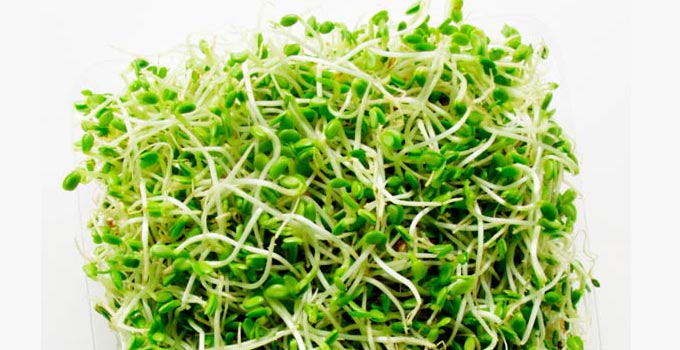
Like any fresh produce that is consumed raw or lightly cooked, sprouts carry a risk of food-borne illness. Unlike other fresh produce, seeds and beans need warm and humid conditions in standing water to sprout and grow. These conditions are also ideal for the growth of bacteria, including Salmonella, Listeria, and E. coli.

What is the source of the bacteria?
In outbreaks associated with sprouts, the seed is typically the source of the bacteria. There are a number of approved techniques to kill harmful bacteria that may be present on seeds and even tests for seeds during sprouting. But, no treatment is guaranteed to eliminate all harmful bacteria.
Are homegrown sprouts safer?
Not necessarily. If just a few harmful bacteria are present in or on the seed, the bacteria can grow to high levels during sprouting, even under sanitary conditions at home.
What can consumers do to reduce the risk of illness?
* Children, the elderly, pregnant women, and persons with weakened immune systems should avoid eating raw sprouts of any kind (including alfalfa, clover, radish, and mung bean sprouts).
* Cook sprouts thoroughly to reduce the risk of illness. Cooking kills the harmful bacteria.
* Request that raw sprouts not be added to your food. If you purchase a sandwich or salad at a restaurant or delicatessen, check to make sure that raw sprouts have not been added.

No comments:
Post a Comment